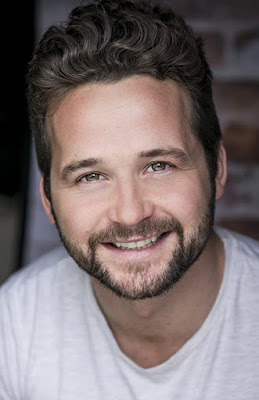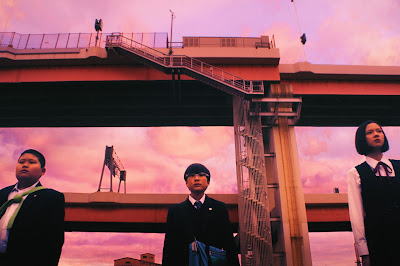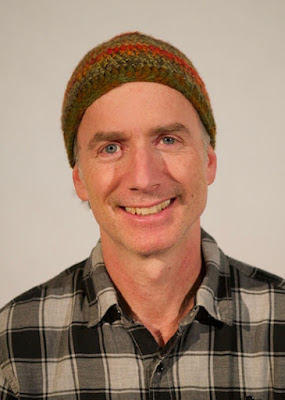Not only have I never seen anything like this movie, I have also never seen a film in which the narrator seems to have so incredibly much in common with me: How I think and feel about so very many things, from politics and protest to culture and movies, life, love and death. And that's for starters.
TrustMovies also must admit that Frank Beauvais (shown at right), the writer and director of JUST DON'T THINK I'LL SCREAM (Ne croyez surtout pas que je hurle) is one hell of a lot younger, brighter and better-spoken than am I. Still, this man's sensibility seem so close to my own that I was hooked on his amazing one-off of a movie from his very first words and their accompanying images. He held me in thrall for the following 75 minutes, as well.
These are not exactly his images, by the way. No, he's cribbed them from the 400 movies he managed to watch during the time, back in 2016, when he moved from Paris to a tiny town in the Alsace region. They are mostly generic-looking images that work well with his narration and move at a very fast pace, so don't even try to identify the films from which they come.
Only a single of these images immediately stood out to me, one from the 1953 horror movie in 3D, The Maze (above), by which I was greatly charmed and scared as a twelve-year-old kid. Otherwise, the images speed past in very nearly a blur, due unfortunately to my not being able to understand French, and so my eye remained on the almost constant English subtitles which (excellently, I suspect) translate M. Beauvais' lovely, graceful, sad and angry words. (No movie I've ever seen has more made me wish that I could speak and understand the French language.)
Just Don't Think I'll Scream details our hero's life (and this guy is indeed a hero, so far as I'm concerned), after his current relationship is severed and he moves to a town so cut off from just about everything that Beauvais, who does not drive, effectively becomes a kind of house-bound hermit, keeping up with world news, watching his movies, and tackling a few other projects.
Early on he explains to us that as he continues watching all these movies, "the films are no longer windows; they're mirrors." We learn something of his mom, who lives in a nearby village and whom he dearly loves, and of his late father, from whom he was estranged. Among the thoughtful and precise little gems of information he drops along the way is how one's possessions can so easily becomes a kind of Stockholm Syndrome.
What seems particularly strange and prescient is how this little film, the events of which took place back in 2016, was cobbled together long before the entry of Covid19 into our world. Yet in its exploration of isolation and the need for digital entertainment, it seems in some ways the perfect reflection of our current time. (The end credits, by the way, list every single film from which a still has been used.)
Perhaps I am dead wrong about my having so much in common with M. Beauvais. Instead, it may be that his stunning combination of narration and "found" film visuals is merely one of the best explorations of "character" I have yet encountered. In any case, as "partial" autobiographies go, this movie is nonpareil, as the French might say.
From KimStim, in French with English subtitles and running just 75 minutes, Just Don't Think I'll Scream opens virtually at Film Forum in New York City and at 15 other virtual theaters across the country tomorrow, Friday, January 29. To learn where and how you can view, click here and scroll down. Clearly, the film is not meant for all tastes. But if you possess anything near to Beauvais' particular sensibility, I'd suggest that you're probably a shoo-in viewer.



























































